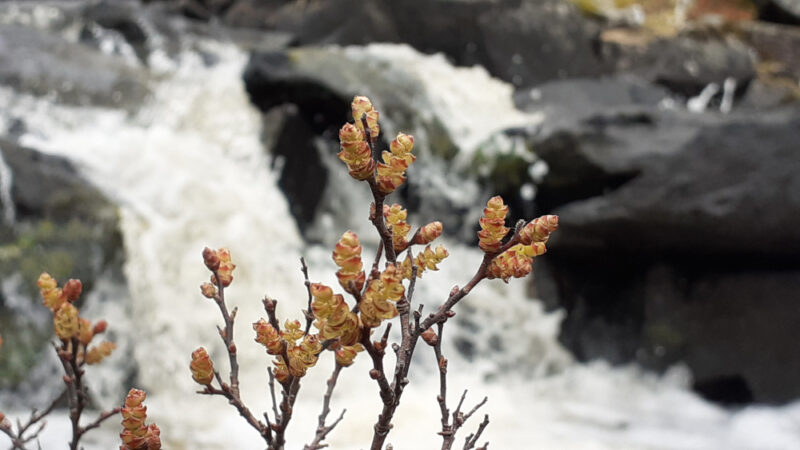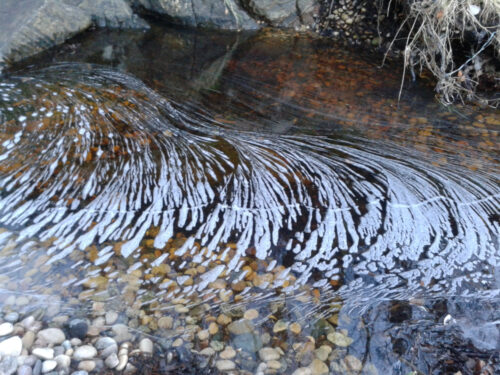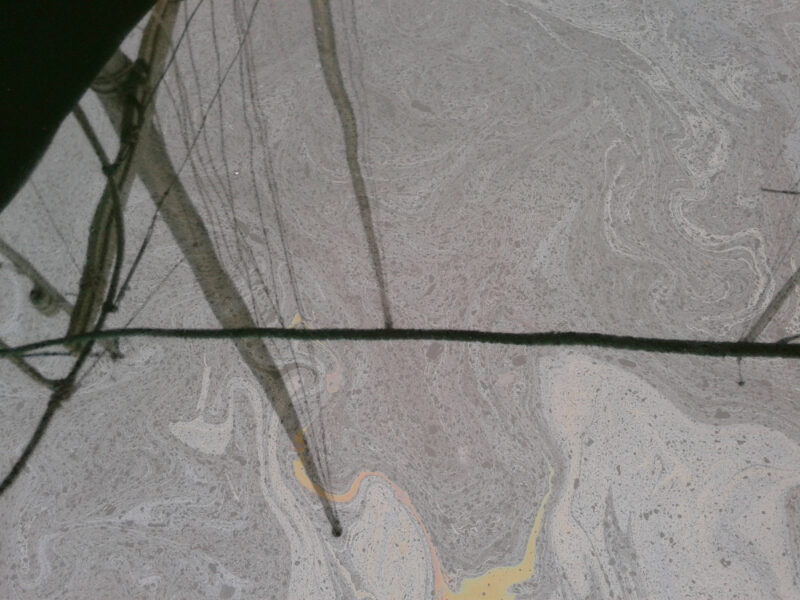no evidence
I scamper off the boat as the white veil sweeps closer, racing ahead of it for the shelter of the woods. It follows behind me like a predatory net curtain, a finely woven mesh of raindrops, whose hem touches down just as I reach the trees. I stand in close to them, watching the rain drumming on the docks and decks and listening to it pelt the fledging birch leaves above me. Within a few minutes it passes and I continue on my walk. When I get back, half an hour or so later, I notice a couple of damp patches in the cockpit and am momentarily confused. It is a confusing day, right enough – one of those squally Scottish spring days: one minute sunshine, the next minute showers, each chasing away the other with fresh abandon as it makes the world anew.
Nonetheless, I wonder how I could forget the rain. I remind myself that my short-term memory isn’t yet fully restored and put it down to that. But then I wonder why I would remember. The sea level is not noticeably higher (at least not from rainfall) and, with the rain having drained from the boat through its various scuppers, the decks are mainly dry. There is no evidence of the rain having passed over. Unlike on land, there are no lingering puddles, no boggy ground, no high rivers or flooding. It’s the same with the wind. It blows and bounces us around endlessly without leaving any markers at all: no uprooted trees, no fallen roof tiles, no scattered outdoor possessions. While the wind can leave waves behind it in the open ocean, in the short fetch of this sea loch, even whitecaps quickly subside. This is one of the differences between living on land and living on the sea. On the sea, the seasons come and go – throughout the day, throughout the year – and the only traces are in our minds.
Lochinver harbour, Assynt, Scotland
4th May 2021




